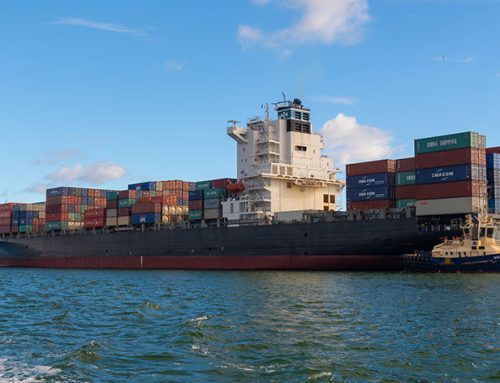What Is Carriage and Insurance Paid to (CIP)?
Insurance is a long-standing practice in trading, and carriage and insurance paid to (CIP) is when a seller pays freight and insurance to deliver goods to a seller-appointed party at an agreed-upon location. The risk of damage or loss to the goods being transported transfers from the seller to the buyer as soon as the goods are delivered to the carrier or appointed person.12
CIP is comparable to but different from cost, insurance, and freight (CIF), an agreement that is used in maritime trade and commodity trading.3 Under CIP, the seller is obligated to insure goods in transit for 110% of the contract value.4 If the buyer desires additional insurance, they must arrange for it on their own.1
CIP is one of 11 Incoterms, a series of globally accepted commercial trade terms most recently published in 2020 by the International Chamber of Commerce (ICC).5
KEY TAKEAWAYS
- The term “carriage and insurance paid to (CIP)” signifies that the seller will pay freight and insurance in sending goods to someone chosen by the seller at a mutually agreeable location.
- The seller must insure the goods being sent for 110% of their contract value.
- CIP is an Incoterm, one of 11 devised by the International Chamber of Commerce (ICC) and accepted around the world.
How CIP Works
CIP is typically used in conjunction with a destination. For example, CIP New York means that the seller pays freight and insurance charges to New York. As is the case with carriage paid to (CPT), carriage or freight charges with CIP refer to transportation charges for any accepted mode of transport, such as road, rail, sea, inland waterway, air, or multimodal transport that involves a combination thereof.4
For example, say that LG in South Korea wants to ship a container of tablet computers to Best Buy in the United States. Under CIP, LG is responsible for all freight costs and minimum insurance coverage to deliver the tablet computers to the carrier or appointed person for Best Buy at an agreed-upon destination. Once the shipment is delivered to the carrier or appointed person for Best Buy, LG’s obligation is complete, and Best Buy assumes full risk and responsibility for the shipment.
If buyers want better insurance coverage than 110% of the contract value, they must pay for it themselves.
Additional Coverage Under CIP
As the seller is only obligated to purchase the minimum amount of insurance coverage to transport the shipment to the destination, the buyer should consider arranging additional coverage that protects the shipment from all risks. Otherwise, the buyer may have to bear huge losses if the shipment is damaged or lost through some adverse event that is not covered by the minimal insurance provided by the seller.
The buyer may also ask the seller to provide extra insurance coverage and—depending on the relative bargaining positions of the buyer and seller—negotiate for the seller to bear part or all of the cost of such additional insurance.
What Does Carriage and Insurance Paid to (CIP) Cover?
CIP is a globally accepted Incoterm devised by the International Chamber of Commerce (ICC) that regulates the cost of shipping items in a business sale. It requires the seller to pay for both freight and insurance costs in sending goods to a buyer chosen by the seller at a mutually agreed-upon location. As soon as the goods are delivered, the risk of damage or loss becomes the buyer’s.
How Much Insurance Does CIP Require?
The seller must take out 110% of the contract value in insurance. If the buyer wishes to have more insurance, arranging and paying for it is their responsibility.
What Kind of Transport Is Eligible for CIP?
Any form of recognized transport can be used, including road, rail, sea, inland waterway, air, and any combination thereof.
The Bottom Line
Carriage and insurance paid to (CIP) means that the seller will pay freight and insurance when sending goods to someone they choose at a location they both agreed on. The seller has to insure the goods being sent for 110% of their contract value. CIP is an Incoterm, which is devised by the International Chamber of Commerce (ICC) and accepted worldwide.





Leave A Comment